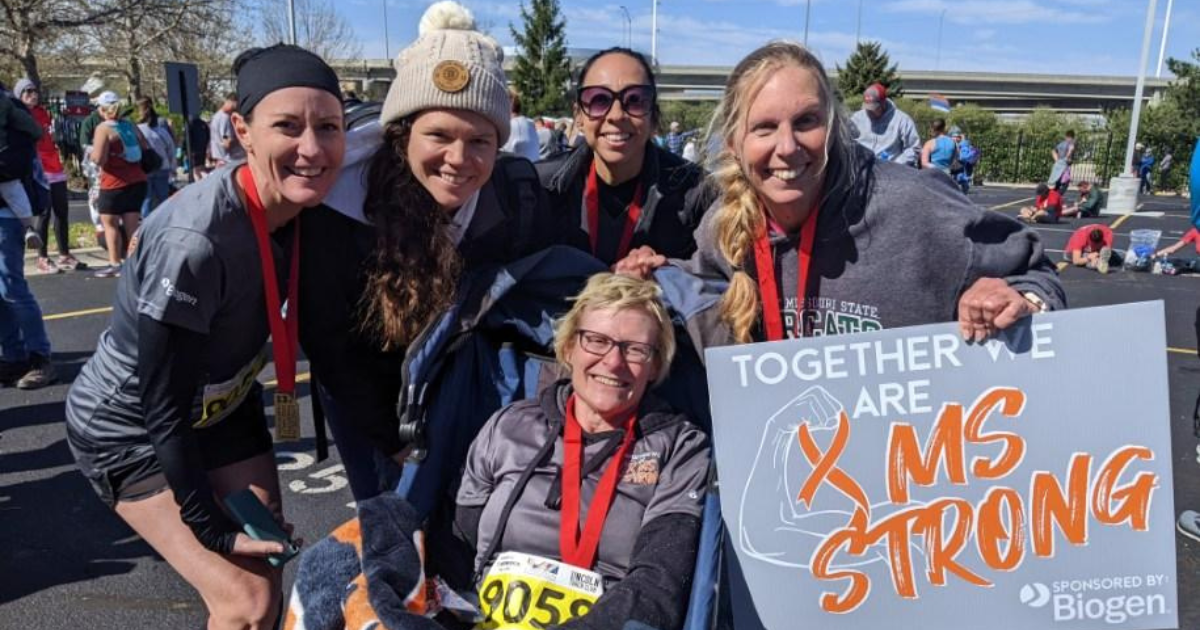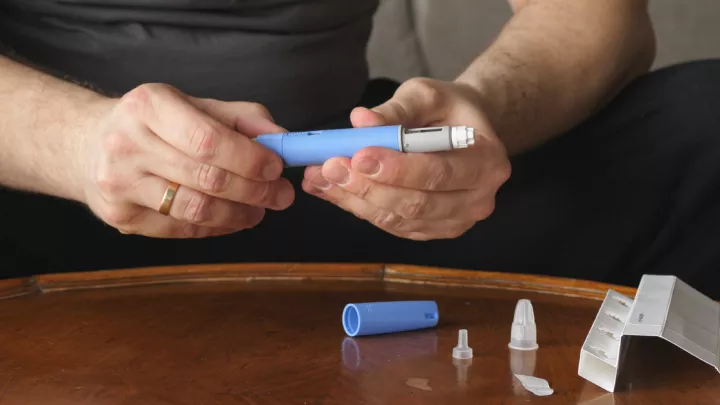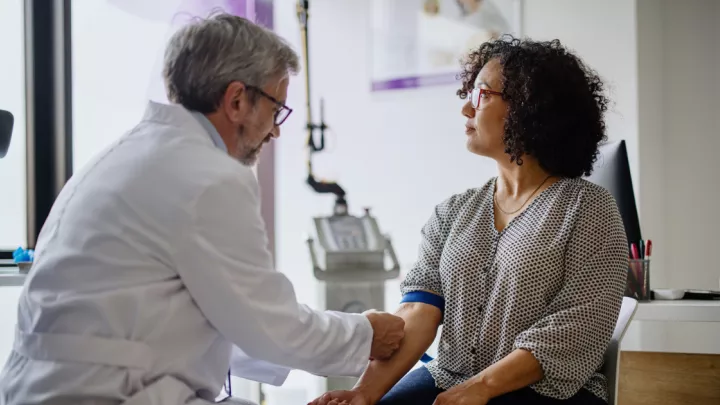MS access program to increase awareness and independence of those living with MS and disability

Multiple sclerosis, or MS, is one of the most common chronic neurologic diseases affecting the central nervous system. It can cause a myriad of symptoms, including walking problems, muscle weakness, sensory loss, vision impairment, bowel and bladder dysfunction, cognitive difficulties and fatigue, among others.
Approximately 12% of people with MS have significant disabilities leading to challenges with performing tasks of daily living, accessing health care, and finding affordable transportation and housing. For some, it can be extremely difficult to even leave their homes.
To address the specific needs of those living with progressive MS, Kathleen Healey, PhD, APRN, at the Nebraska Medicine MS clinic, who has retired from clinical practice, initiated the MS At Home Access Program in 2013. This home-based, patient-centered, comprehensive model of care works to improve access to health care and address the unmet needs of this population.
“Our goal not only is to provide them with the needed medical care, but we also address psychosocial aspects,” says Renee Stewart, APRN, DNP, nurse practitioner of the MS At Home Access Program. “We work to connect them with resources in our community to keep them empowered. This often includes collaboration with bedside caregivers, home health nursing, physical and/or occupational therapy and durable medical vendors.”
The MS At Home Access Program team started a scholarship exercise program in 2021 for the individuals they serve with a generous donation from a community member. “During the COVID-19 pandemic, we noticed many individuals becoming severely depressed and more isolated,” explains Stewart. “We knew we needed to find a way to connect them. We collaborated with community partners, MS Forward Gym and Horizon Spine PT and have been able to bring people together to exercise and socialize.”
Some individuals can exercise at the gym in person, while others connect via a live online video connection.
“Exercise is important, but equally so is the impact this initiative has had on their quality of life,” says Stewart. “We want to continue to be able to support the scholarships and expand the offer to more of our people.”
Nebraska Medicine is a sponsor for the annual MS Strong Community Race event each May. The event includes a fun run, 5K and 10K run/walks, in addition to music, food and other family-fun activities.
Priority funding for the event will go toward expanding the scholarship exercise program. The team also hopes to increase awareness of the challenges those living with MS and disability encounter daily. Excess funds will be earmarked for the MS At Home Access Program. The team’s long-term goal is to start an MS day achievement program.
The Nebraska Medicine MS clinic is the only affiliate of the National Multiple Sclerosis Society in Nebraska. It is also a part of the Consortium for Multiple Sclerosis Centers, a network of more than 150 MS centers that endorses a strong, multidisciplinary approach and a full continuum of care.






